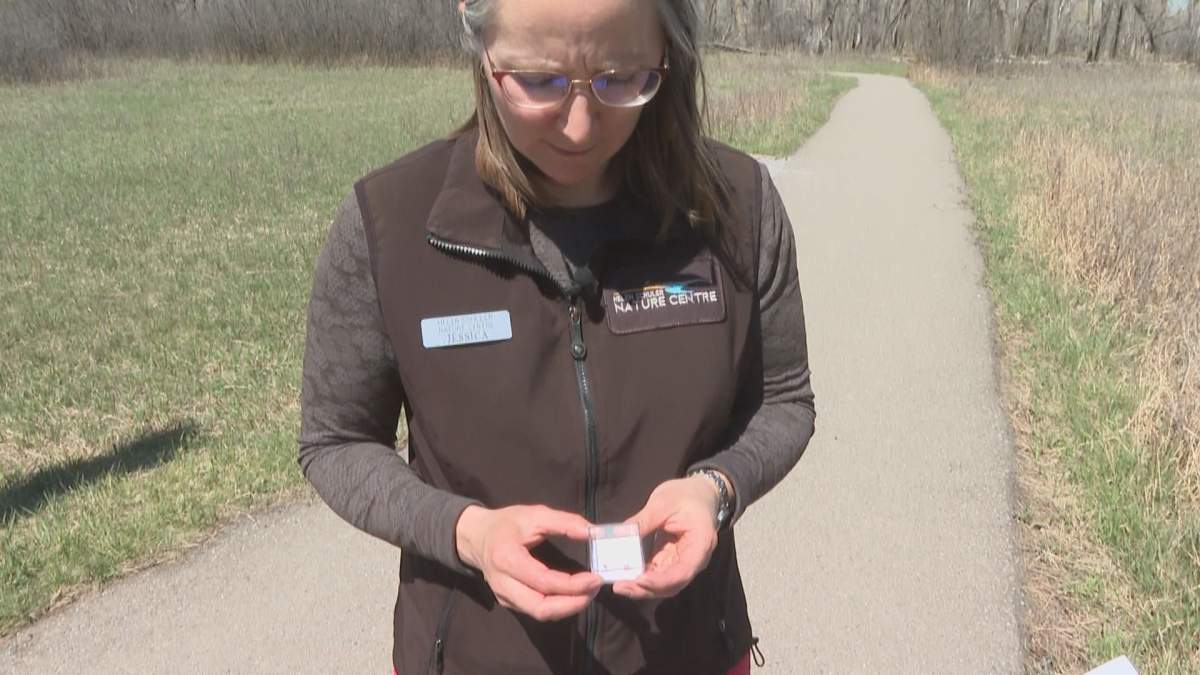It’s springtime in southern Alberta, whihc means it’s tick season.

Jessica Deacon-Rogers, the education program coordinator at Lethbridge, Alta.’s Helen Schuler Nature Centre, said they typically warn people to be aware of ticks from the beginning of May until the end of June.
Ticks, which are part of the arachnid family, are typically very small and have eight legs and two body parts.
“I talk about them as being cousins to spiders,” she said. “But unlike spiders they’re very very flat.”
According to Deacon-Rogers, the most common type of tick seen in Lethbridge is called the Rocky Mountain Wood Tick. While they aren’t known to spread Lyme disease, they do produce a toxin that can cause paralysis in humans and animals. Symptoms of Rocky Mountain Spotted Fever can appear within three to 10 days after being bit, and include severe headache and continuous fever.
Deacon-Rogers said it’s important to do “tick checks” when out-and-about in long grasses, since the insect likes to roam before biting down.

Get daily National news
“You’ll be able to see if there’s a tick on you, and then just simply throw it off of your clothing.”
The ticks can’t fly or jump, but rather hang upside down on long grasses and fall off when brushed against.

Sticking to existing pathways void of grasses is one way to avoid the risk. When walking through long grasses, it’s best to wear light-coloured pants tucked into socks and use DEET, a type of insect repellent.
If bit, it’s best to head to your doctor.
“You do have to get all of the body parts of the tick out of the bite, so that it doesn’t get infection,” Deacon-Rogers said. “With dogs, sometimes people don’t notice they’ve been bit by a tick just because they have so much fur on them. I’d suggest taking them to a vet just to get checked.”
The Helen Schuler Nature Centre encourages the public to visit their location in Indian Battle Park with any questions. They have had very few reports of tick so far this year.


Comments
Want to discuss? Please read our Commenting Policy first.